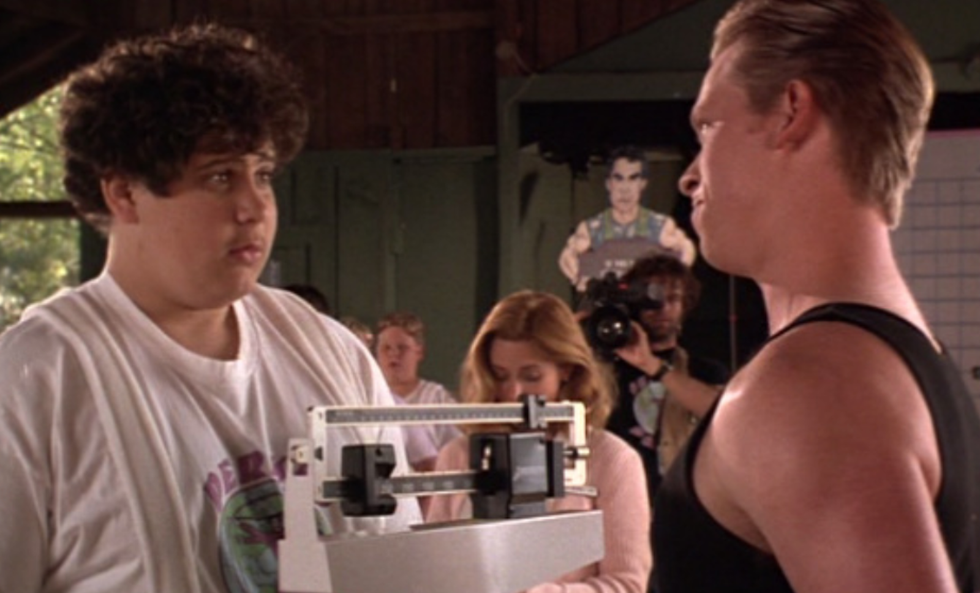Fat camp – that’s what it is.
It’s not “new image” camp or any other positive, motivating or inspiring word that owners try to use as business tactics to brainwash customers. It’s fat camp because the only thing celebrated or even highlighted is losing weight.
Sure, losing weight has its benefits: you look better and you’re supposed to feel better, but when you’re sent away from home for six weeks at a young age and have no choice but to work out for five hours a day, then of course, you’re going to lose weight.
What people don’t realize, though, is that if fat camp instills anything in its campers, it’s eating habits that would otherwise be considered eating disorders. Accompanied by an unhealthy and almost impossible workout regimen, this diet is not enough to sustain an individual, especially a young and growing one, as many campers are.
The problem with this is that parents think that after a few short weeks, their children will return home with a new outlook on their health and well-being.
They think their children won’t relapse once they are in the presence of all the food that they are accustomed to eating, and that they will work out for just as many hours despite their busy, everyday schedules that they’re used to.
Unlike most, I went to two fat camps at two very different stages of my life. In sixth grade, my parents thought that it would be an amazing opportunity to learn about the importance of my health from others, including nutritionists and other professionals that they were not.
I was hesitant, but I agreed because I had not known any different or any better. I was sick and tired of discussing my weight with my parents and thought that my life would be forever changed. The website said it would be, so why wouldn’t it be?
Silly, vulnerable me.
Needless to say, it was the worst summer of my life.
I returned home significantly thinner, but felt as if I had learned very little about food and was unequipped with the necessary skills to follow that same diet and workout regimen at home. I had met a few good friends, but no one that I felt the need to keep in touch with like my other friends did with their home friends. I was so excited to leave such an overly competitive and unsupportive environment.
Then, in my junior year of high school, I expressed interest in going back to fat camp. This time, though, to another camp and only for three weeks. After losing a significant amount of weight on my own in my sophomore year of high school, I knew the diet and workout regimen that worked best for me, but I still wanted to see if I could learn more.
And so, I went again. My experience was completely different: I made friends that I still talk to over two years later and I actually enjoyed being there a little more. Still, I knew that something was off, and my belief about fat camp was reaffirmed: it’s just another unpromising business.
Being in the oldest division in camp, I knew things that I would have never known in my sixth-grade years. I watched a counselor on boys’ side get fired because he was selling candy to his campers for astronomical prices, and I heard of girls sneaking snacks that they had their friends back home stuff into stuffed animals and ship to them.
This willingness to deliberately cheat on something that parents paid so much money for and instilled so much confidence in confused me, but I knew that it was because people didn’t genuinely care about their health.
The focus was on losing weight. Every Sunday evening activity ended by the owner announcing how many pounds the boys’ side lost and how many pounds the girls’ side lost, hoping that by creating a competitive environment, people would be more motivated to lose weight.
Instead, people are focused only on losing weight, and they forget about their health and well-being. They forget about their happiness and confidence, amongst so many other important attributes, that would help these campers continue to lose weight and maintain good health once they walk out of the camp gates.
Unlike other things that aren’t the same as they look in television, fat camp is. It’s exactly like the Biggest Loser and other weight-loss competition shows, only those who are there are almost half the age of the contestants. We see that these individuals so often relapse and gain weight, and more than anything, we see how unhappy and lonely they are.
Why do we think it is beneficial to send our children and encourage other friends and family members to subject themselves to an institution that will inherently leave them worse off?
Weight loss is more about the journey than it is about the results. It’s about the lessons you learn through it, the people you meet who support you while you do it, and it's about improving your health and wellness.
None of these aspects are focused on in fat camp, in fact, the journey is obsolete. The "before and after" is the only thing focused on. And for that, for going to two different camps at two different stages in my life and realizing the unhealthy behaviors that could have consumed me had I not focused on my happiness above all, I am thankful that I was not the kind of consumer that camp owners wanted me to be.
You can always lose weight, but you can not lose sight of your health and of the idea that skinny doesn't equate to happy or healthy. Remember that.



















